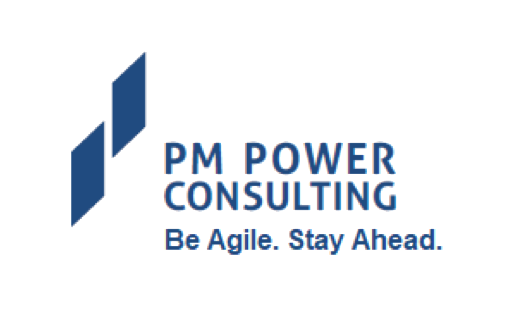Some time back, a friend asked me “you have mentored a number of manager-level people in your home domain of software, but are you up to mentoring college kids?”. When posed like that, how can I not take it up?! So, let me try, I told my friend who also pointed me to a digital mentoring platform – mentortogether.org. I promptly signed up as a mentor for two students pursuing engineering degrees. My mentoring journey with them has been an interesting and refreshing experience with many “mindful shifting of gears” on my part. Let me elaborate.

Before that, let me share some information on using a digital mentoring platform – a first for me. Here is a list of things that I really liked about the mentortogether.org platform:
- The platform is really simple to use for mentors and mentees. It provides the framework for the entire mentoring program. The mentoring plan is already there, developed based on typical needs of college students
- The platform is populated with very engaging content with e-learning modules such as “Mastering job interviews”, “Vision for life”, “Value of Values”, “Managing Emotions” and so on complete with videos, quizzes and exercises
- Mentees decide their mentors; the platform enables the match-making using mentee parameters like background, available time slots, preferred language, gender etc.
- A program coordinator is available for support and assistance with issues
The platform is excellent but that gets you just to the first gear. I needed several subsequent gear shifts on an ongoing basis to adjust to the new context. Here are a few examples:
- Compared
to mentoring managers in a corporate setting, the landscape is quite different,
more about “life skills” than about improving performance - The
initial connect takes relatively longer. At the start, mentees are not quite
sure of what to expect. I think initially my mentees thought of me as one of their
college faculty while my own wish was to be treated more like a guide and
friend. The extra time up front to sync up is essential for picking up speed
and moving to higher gears - While
there is a well-defined overall program plan, adaptations are needed more often.
For example, in the module on developing a vision, I found my mentees related a
lot more to the immediate 6-12 months ahead rather than a distant life vision. In
such cases, we mutually agreed on what to focus on and how much time to devote - The
program prescribes a mentoring cadence to be maintained. My mentees and I (yes,
mentor also!) need to complete self-study of target modules offline prior to discussing
them in weekly zoom sessions. However, mentees have other higher priority demands
on their time – academics, college events and such. But I usually got advance
notice and able to plan – going slower at times and picking up speed later (not
so easy with my manager mentees where many times work-related interruptions would
come out of the blue) - I found that as my mentees got the hang of the program (and myself!), they asked for
more; advice on target employers, further studies, family constraints etc. This
was, of course, to mentor’s delight – a sign of the relationship enhancing and more
opportunities for value addition. Those were indeed the top gear moments!

Of course, sometimes just shifting gears is not enough; one has to get out of the car and look under the hood. For example, after a promising start, a mentee seemed to lose interest. He fell behind in his mentee exercises, missed zoom sessions and generally went quiet. It was not easy for me to figure out what was happening with him. Unlike in the corporate setting, there was no mentee’s manager I could reach out to. So, I tried one-on-one conversations; getting another mentee to reach out; seeking advice from the program coordinator etc. Things are improving – but still work in progress

To conclude, here are a few tips for mentors venturing out in a significantly new context:
- Treat
your mentee-connect as an all-important aspect of every session, not just in
the initial stages; get to know the mentee holistically – college life, family,
friends, sports, movies, music etc.; likewise, get the mentee to know you equally
well - Keep
detailed notes on mentoring sessions and areas to pursue in following sessions - Prepare
well prior to every mentee session: a rough mental map, review of your notes
etc. - Listen
carefully and make the mentee aware that you have been listening; it significantly
reinforces the connect - Be sensitive to mentee moods – cut short sessions when the mentee seems distracted
While I knew up front that I had to adapt significantly, I realized the analogy of conscious gear shifts in mentoring was very useful for me. However, they were not as challenging as when I first learnt to drive a car with stick shift. Back then, I wished I had three legs! Overall, I found the experience very interesting and fulfilling.
As always, look forward to hearing your views and “gear shifting” experiences.





4 Responses
Hi Shiv, I can relate to this, it is a real different world.
I was invited a few times to address students appearing for CET exams as an industry person and found it challenging to connect with them. I was able to connect somewhat as one of their concern was what if they do not get into a good college, which I was able to address by sharing real life examples.
Thanks Vasu. College “brand” no doubt helps early on in work life – corporate doors open more easily. But down the line, it is people’s motivation and track record that helps build careers. I am sure we have all seen examples affirming this. I have stressed with the mentees that I work with. An aside, the mentorship program I am involved in spans 4-5 months and so, I have had time to work on the “connect”! Yes – takes time and effort.
Hi Shiv – very well written – thanks for the write-up.
Many years ago I was a volunteer mentor for a couple of youth as part of Dream A Dream’s life skills mentoring program. This was in person mentoring where the mentee and I would meet periodically (usually on a weekend) and discuss general topics. There was no prescribed structure though all mentors did go thru a few hours of in person training. Based on that experience I can corroborate that it takes time for the mentee to open up, especially in that case given their lack of confidence in expressing in English which was the recommended language for communication. Switching to Tamil (in one case where the mentee was from Tamil Nadu) helped.
Can also relate well to your point on swings in mood and engagement level of the mentee and the need for mentor to shift gears accordingly.
I am sure the mentees are benefiting a lot from your vast and varied experience – hope you will come back to mentor more such students after you complete the current mentorships and possibly take a break!
Thank you, Bhasker!